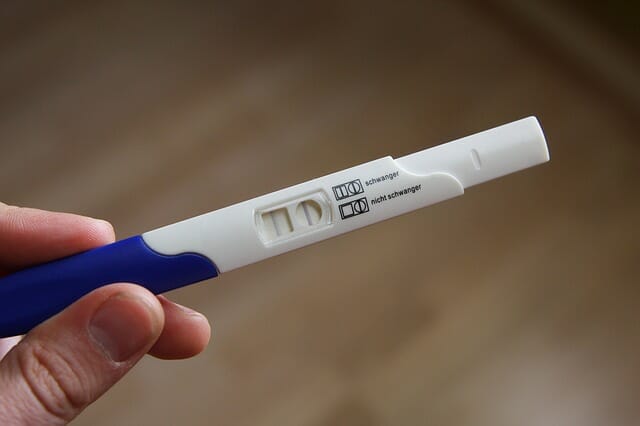Congenital cardiovascular malformations are, unfortunately, frequent and serious birth defects that occur in 10 out of every 1,000 live births. Multiple investigations have been done to determine the possible causes of these malformations. Some research assessed if maternal infections could be related to these birth defects.
These research trials had some striking results. There was a prevalence of congenital cardiovascular malformations in babies born in specific months due to the seasonal presence of some viruses. The studies also showed that maternal respiratory infections could be associated with early cardiovascular disease in children.
In 2007, a group of American researchers conducted a study titled “Maternal Urinary Tract Infections and Selected Cardiovascular Malformations” to evaluate whether maternal urinary tract infections could be related to cardiovascular malformations in babies, especially if the mother had a fever caused by the infection or if the mother received trimethoprim-sulfamethoxazole, an antibiotic usually prescribed for the condition. The study was first published in February 2008.
How Did They Conduct the Study?
The researchers retrieved data from a very famous previous trial performed by the National Birth Defects Prevention Study (NBDPS) to examine the relationship between the occurrence of some subtypes of congenital cardiovascular malformations and maternal urinary tract infections.
The NBDPS is a case-control study intended to identify the causes of more than thirty structural birth defects. It provides a unique opportunity to examine the association between cardiovascular malformations and maternal urinary tract infections in a large cohort of women.
The new review included case and control NBDPS participants who had live, single births and whose estimated date of delivery was between October 1997 and December 2003.
Researchers used uniform diagnostic criteria and birth defect surveillance registries to identify the case infants. NBDPS-eligible case infants had no known genetic disorders or chromosomal abnormalities and were diagnosed with a cardiovascular malformation by echocardiogram, heart catheterization, or surgical or autopsy report.
The control infants had no birth defects and were randomly selected from birth certificates or hospital discharge listings during the same time period.
Is There a Relationship or Not?
Overall, there was little evidence to support an association between cardiovascular malformations and maternal urinary tract infections that occurred during the first trimester of pregnancy.
However, some cardiac injuries, such as atrioventricular septal defects, were more likely to occur in children whose mothers had suffered from urinary tract infections. In addition, a significant association was observed between maternal urinary tract infections and pulmonary valve stenosis, but only in the presence of maternal fever.
The NBDPS data also suggests that the risk of cardiovascular malformations may be greater among women who used the antibiotic trimethoprim-sulfamethoxazole than among those who did not.
Moreover, maternal urinary tract infections during pregnancy may also increase the risk of other conditions besides cardiovascular malformations, such as pyelonephritis, premature birth, low birth weight, and fetal mortality. Some recent research even indicates that urinary tract infections during the first trimester of pregnancy may increase the risk of cerebral palsy in offspring.
Although early detection and aggressive treatment of urinary tract infections during pregnancy are highly recommended, most women are not diagnosed until their first prenatal care visit when the fetus’s cardiovascular development is complete. Therefore, the diagnosis and treatment of urinary tract infections are included in preconception clinical treatments to reduce the risk of cardiovascular malformations in the children of affected women.
So, if a urinary tract infection occurs during pregnancy, then mothers should take their child to the pediatrician, who will determine if the child needs treatment.
Reference
Cleves, Mario A., Sadia Malik, Shengping Yang, Tonia C. Carter, and Charlotte A. Hobbs. “Maternal Urinary Tract Infections and Selected Cardiovascular Malformations.” Birth Defects Research Part A: Clinical and Molecular Teratology 82, no. 6 (2008): 464–473. Retrieved from: https://www.ncbi.nlm.nih.gov













